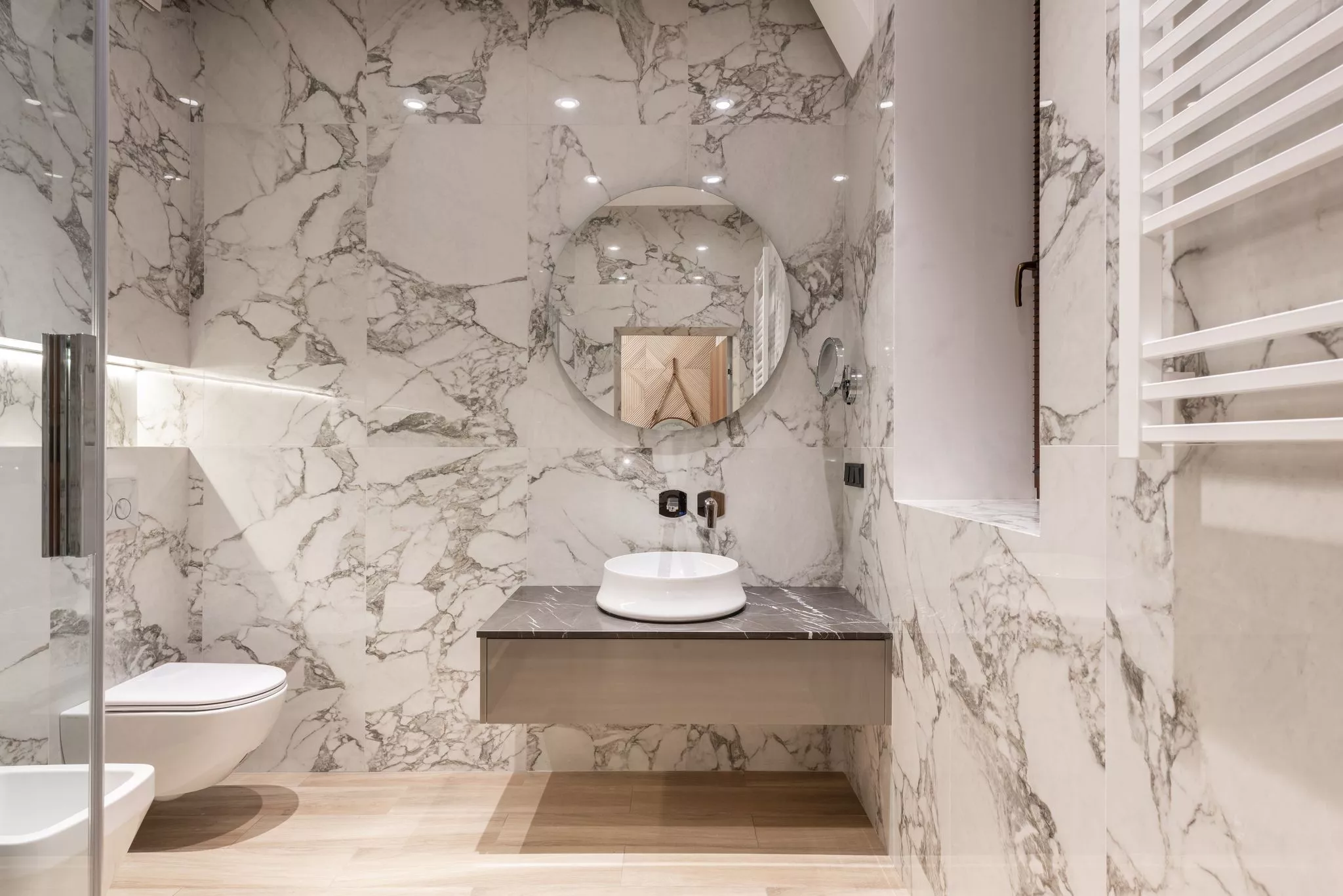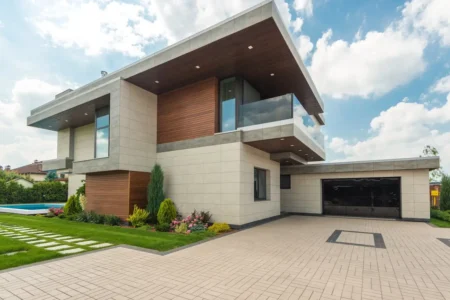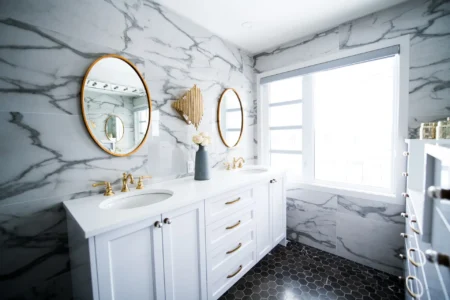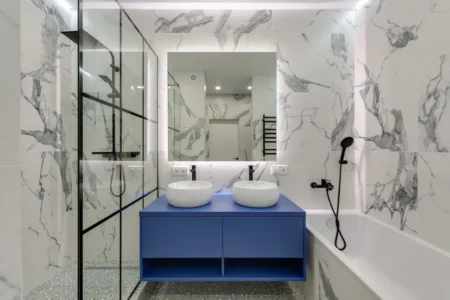Choosing the right tile for your home can be a daunting task, especially when you’re torn between porcelain and ceramic tiles. Both have their unique advantages and drawbacks and understanding these can help you make an informed decision. In this blog post, we’ll delve into the differences between porcelain and ceramic tiles, compare their durability, maintenance, and cost, and help you determine which one offers the best value for your money.
What are the differences between porcelain and ceramic tiles?
Before we dive into the comparison, let’s first understand what sets these two types of tiles apart.
- Material and Manufacturing Process: Ceramic tiles are made from a mixture of clay and other natural materials, which are then molded and fired in a kiln at high temperatures. On the other hand, porcelain tiles are made from more refined clay and are fired at even higher temperatures. This results in a denser and less porous tile compared to ceramic.
- Durability: Due to their manufacturing process, porcelain tiles are generally more durable and resistant to wear and tear than ceramic tiles. They can withstand heavy foot traffic and are less likely to chip or crack.
- Water Resistance: Porcelain tiles have a lower water absorption rate, making them an excellent choice for areas that are frequently exposed to water, such as bathrooms and kitchens.
- Design and Aesthetic Appeal: Both porcelain and ceramic tiles come in a wide range of colors, patterns, and sizes. However, porcelain tiles often have the color and pattern running through the entire tile, not just on the surface, which can be beneficial if the tile chips.
- Installation and Maintenance: Ceramic tiles are easier to cut and install, making them a popular choice for DIY projects. Porcelain tiles, while more durable, require a professional for installation due to their hardness.
Now that we’ve understood the basic differences, let’s delve deeper into the comparison of durability, maintenance, and cost.
Porcelain vs Ceramic Tiles: Durability, Maintenance, and Cost Comparison
When choosing between porcelain and ceramic tiles, it’s essential to consider not just the initial cost but also the long-term durability and maintenance requirements.
- Durability: As mentioned earlier, porcelain tiles are denser and more durable than ceramic tiles. They can withstand heavy foot traffic, making them ideal for commercial settings or busy areas in the home like the kitchen or hallway. Ceramic tiles, while still durable, are better suited for areas with less traffic.
- Maintenance: Both types of tiles are easy to clean and maintain. Regular sweeping and mopping are usually enough to keep them looking their best. However, ceramic tiles may require more frequent resealing than porcelain tiles, especially in areas exposed to water.
- Cost: Ceramic tiles are generally less expensive than porcelain tiles. However, considering the durability and lower maintenance needs of porcelain tiles, they may offer better value in the long run, especially in high-traffic areas.
Cost Analysis: Getting the Best Value for Your Money
When it comes to cost, it’s not just about the price per square foot of the tile. You also need to consider installation costs, maintenance costs, and the lifespan of the tile.
- Installation Costs: Ceramic tiles are easier and less expensive to install than porcelain tiles. If you’re on a tight budget or planning a DIY project, ceramic tiles might be the more economical choice.
- Maintenance Costs: While both types of tiles are relatively low maintenance, ceramic tiles may require more frequent sealing, which can add to the overall cost over time.
- Lifespan: Porcelain tiles are more durable and have a longer lifespan than ceramic tiles. While they may be more expensive upfront, they could save you money in the long run by not needing to be replaced as often.
In conclusion, both porcelain and ceramic tiles have their pros and cons. The best choice for you will depend on your budget, the area where
Closing Thoughts: Making the Best Choice for Your Needs
Choosing between porcelain and ceramic tiles is a decision that should be based on your specific needs, preferences, and budget.
- Consider Your Space: Think about where the tiles will be installed. For high-traffic or moisture-prone areas, porcelain tiles might be the better choice due to their durability and water resistance. On the other hand, for areas with less traffic or moisture, ceramic tiles could be a cost-effective and equally beautiful option.
- Think About Maintenance: If you prefer a low-maintenance option, porcelain might be the way to go as it requires less frequent sealing than ceramic. However, remember that both types are relatively easy to clean and maintain.
- Budget Matters: If you’re working with a tight budget, ceramic tiles are generally less expensive upfront. But don’t forget to consider long-term costs. Porcelain’s durability might make it the more economical choice in the long run.
- Style and Aesthetics: Both porcelain and ceramic tiles come in a variety of designs, colors, and sizes. Choose the one that best fits your style and the aesthetic of your space.
In the end, both porcelain and ceramic tiles are excellent choices, each with its unique advantages. It’s all about finding the one that best fits your needs and lifestyle. Remember, the best tile for you is the one that you’ll be happy living with for years to come.




